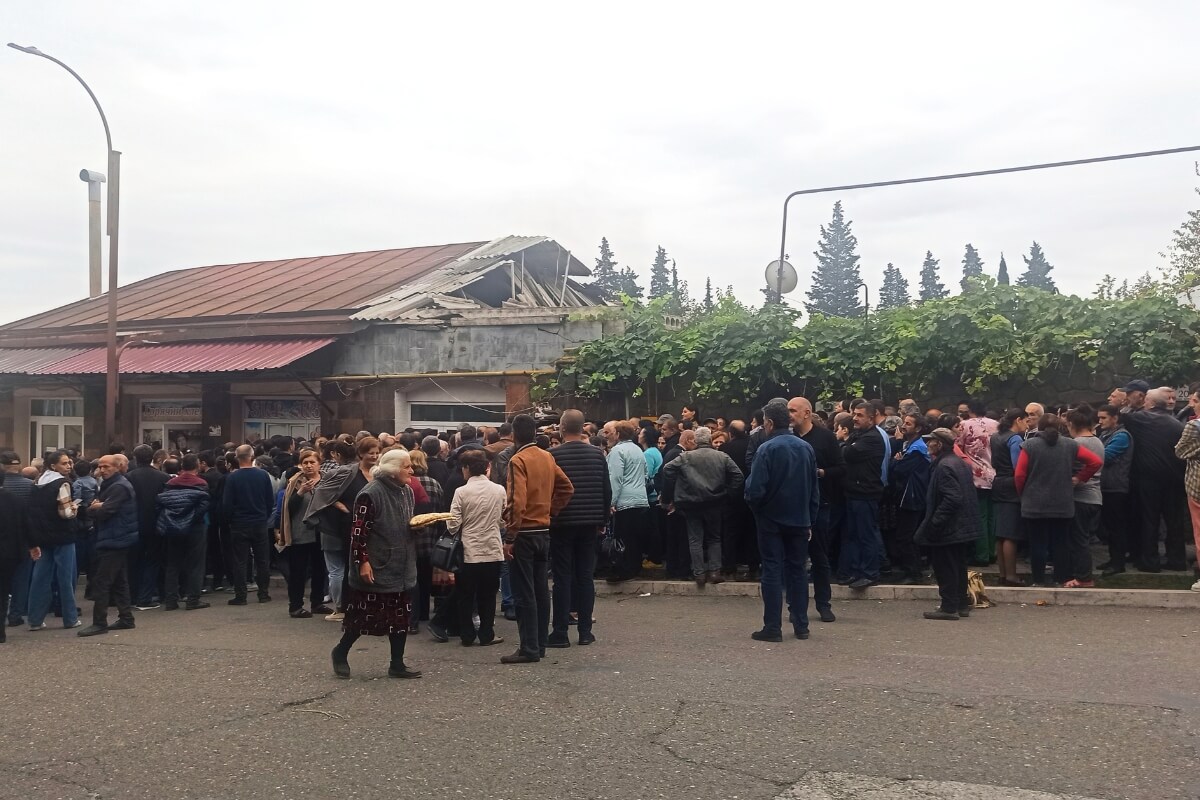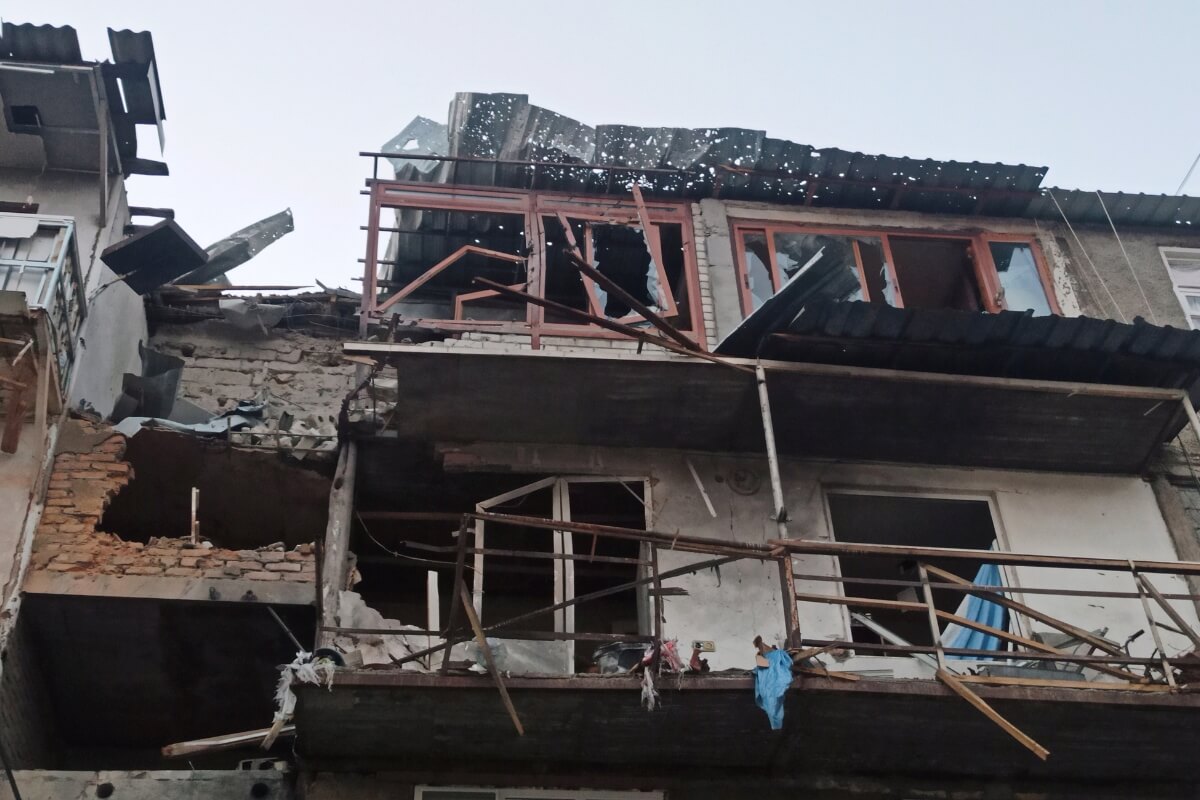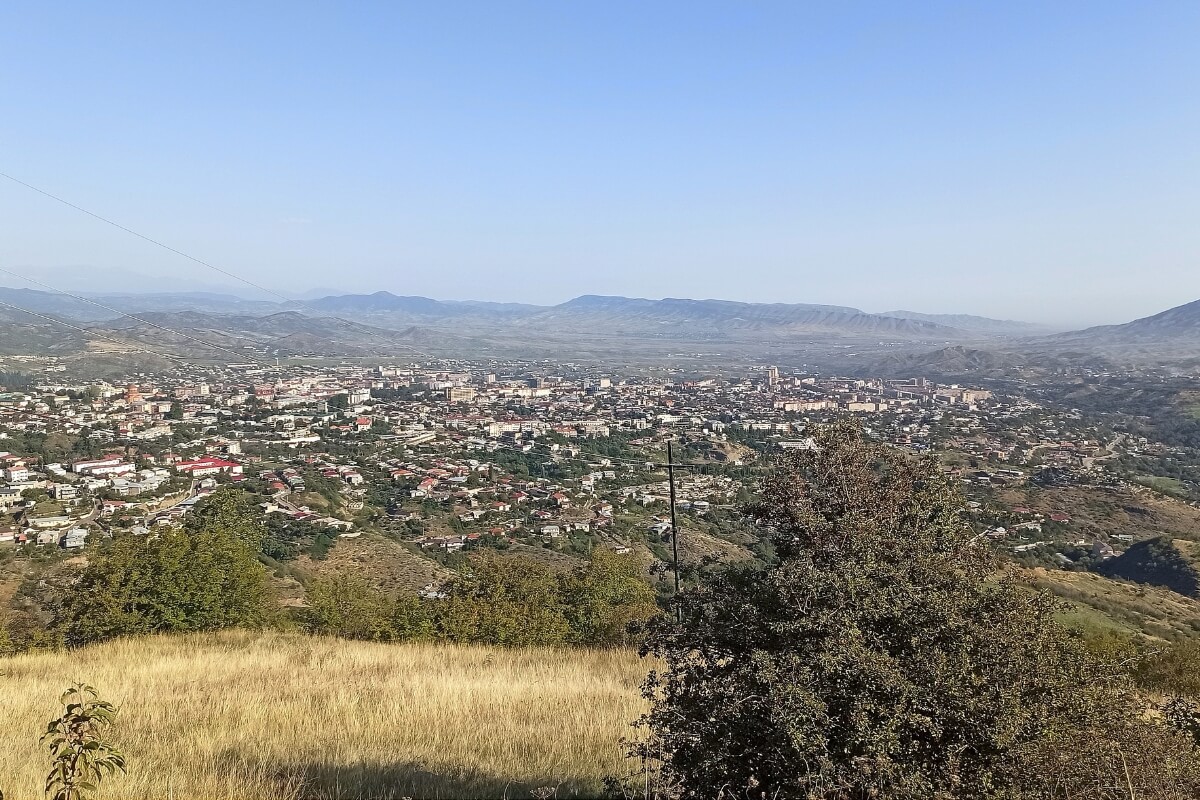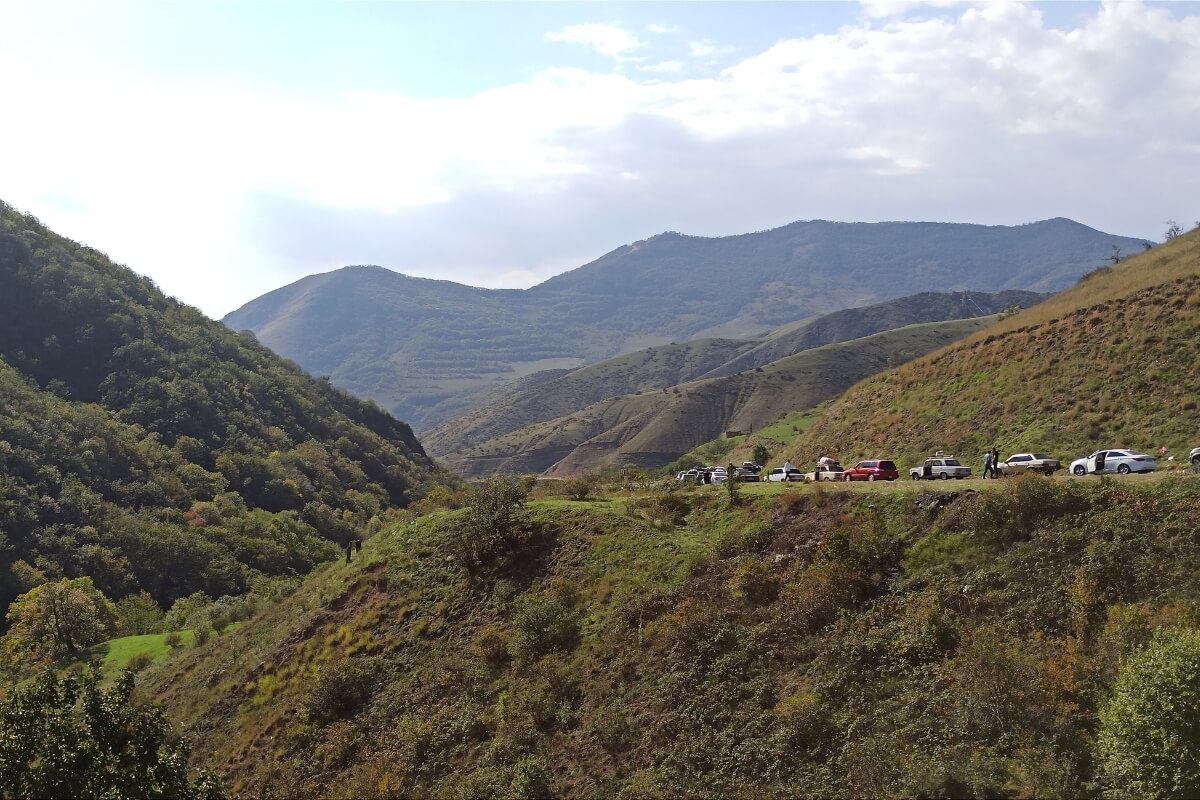My Road
26.01.2024
5 min read
Repats for Artsakh
The Artsakh Diary of Zhenya Yengibaryan: Part 2
-webp(85)-o(jpg).webp?token=bb5d91e408578f8d4ab54995f80286d4)
It turned out that the women not only had the same surname but also common ancestors - their grandfathers were cousins. It was symbolic that the conversation took place opposite Shushi. It was already 2022, so Zhenya no longer had the opportunity to find the graves of her ancestors, but she got answers to her questions at last.
Zhenya found her life in Armenia with her roots in Artsakh. “The whole Armenia is my homeland, and Artsakh is its heart,” she once wrote.
Zhenya Yengibaryan stayed with her family and friends in the city of Stepanakert and was keeping a diary during the blockade, writing about things that were actually happening in Artsakh. People were going through a harsh period of struggling. But no one around Zhenya was going to leave the city - the people of Stepanakert knew there would be no electricity so they were buying firewood and installing cast iron stoves.
Zhenya found her life in Armenia with her roots in Artsakh. “The whole Armenia is my homeland, and Artsakh is its heart,” she once wrote.
Zhenya Yengibaryan stayed with her family and friends in the city of Stepanakert and was keeping a diary during the blockade, writing about things that were actually happening in Artsakh. People were going through a harsh period of struggling. But no one around Zhenya was going to leave the city - the people of Stepanakert knew there would be no electricity so they were buying firewood and installing cast iron stoves.

Zhenya continues: “Despite all the difficulties, the blockade, the famine, only a few expected such an outcome, although it was obvious back in 2020. People still believed that Russia would support Artsakh. Not because Russia came to protect them, but because that country had its own interests in the region, due to which Artsakh people could lead a normal life in their hometowns - that was the way the majority of Artsakh residents thought. Everything changed overnight after September 19th..."

Speaking about her life in Armenia, current plans and her activity as a journalist, Zhenya admits: “I hesitate as to whether I should publish my articles in some Russian media channels. I reject cooperation with those that do not consider the interests of Armenia. I also would like to write my articles in Armenian, but I should ask someone to check the material first.” Just imagine, the last statement is made by a person who is absolutely fluent in Armenian. It’s impressive that Zhenya learnt Armenian language on her own and began with reading store signs. Arranging a meeting I sent Zhenya a message written in Armenian and she answered me in a more than grammatically correct manner. It is also worth saying that Zhenya has a lot of publications in Armenian on her page.
"What do you think about the future?" – I ask Zhenya. “Now, as well as in the future, the most important thing is to learn how to live in a new reality, with this pain and melancholy burning from within, but at the same time not to burn out. To be honest, I’m not good at it so far. When you are a volunteer and help those who really need your help, you feel a bit better. When you see people who were born and lived the major part of their lives in Artsakh and had to leave everything they had (after all, they are in even more pain than me), but they are still strong enough to start everything from scratch, to live and create – it inspires you and gives you strength.

I think it is important to talk about the true history of the conflict on a variety of platforms, to collect testimonies and stories from those who witnessed and became victims of Azerbaijani aggression and crimes in September. Whatever it is, no matter how much the world today prioritizes the notorious territorial integrity over the right to self-determination, turning a blind eye to crimes and the monstrous Armenophobia that has become the “state religion” in Azerbaijan, we must not silently put up with the current state of affairs, we must resist, present facts and evidence of crimes and human rights violations, and also help the so-called civilized world, which puts freedom and democratic values at the forefront, to slightly push aside the mask of hypocrisy and double standards. And this is important not only in the struggle for the rights of the Armenians of Artsakh, but also in the future fate of Armenia. I know that talking to people will not be easy, it requires a subtle approach and a lot of work, but all this material must be collected and published. I hope the wound is no longer completely fresh now and people want to talk and share their experiences and opinions.
The most difficult thing is to explain to ordinary people that we cannot give up. In Artsakh, I often encountered hopeless apathy: “Why write about the blockade? Why take pictures of a queue? Why go to a political demonstration? There is no use, nothing will change, the world doesn’t care about us, everything has already been decided, ordinary people can’t influence anything.” Yes, with this approach we definitely can’t expect anything good, and this is against the backdrop of the active work of the Azerbaijani propaganda machine, which is filled with lies. We need to work, and not claim with tears in our eyes that everything was decided for us. Without looking back at the current rhetoric of the government, we, as part of civil society, must continue to justify the right to live on our land outside the framework of Azerbaijan. There is the example of Kosovo, and we need to look in this direction, no matter what happens next.
Of course, the efforts of the Diasporan Armenians are also necessary. They may, for example, agree on publications in the press of their countries, raise this topic wherever possible in order to form a trend in attitude towards the problem to break false Azerbaijani narratives. Now it seems unrealistic to achieve any results, but no one knows how the situation may turn out in the future - we must be prepared for anything, and we cannot waste time,” says Zhenya and adds that she prefers to live by the principle “Do your duty, come what may.”
“I think after a while I will start writing again,” Zhenya adds. “Not articles, but notes based on real stories of people who lived in Artsakh in recent years. Many people say that I must write, it’s very important. They are right. I visited many places in Artsakh, communicated with different people. Metaphorically speaking I had the need to hug every stone. I became a witness and participant in another Armenian tragedy, and witnesses should not remain silent. The main thing is to gather your strength.”

We talked about Zhenya’s familiar repatriates at the end of the meeting, and Zhenya shared her thoughts: “You know, some of them used to write to me that they were highly motivated to come to Armenia, their homeland, by reading posts and seeing photos on my page on social media. They keep silent now - maybe because my “Artsakh” page is too realistic for them. But I was so glad when I saw in my social media feed that a friend of mine had moved with her child from Moscow to Yerevan! There are few of us, and it’s good that our land will be held by plus four Armenian legs.”
Nare Bejanyan
-
Armenian by Choice
-webp(85)-o(jpg).webp?token=67c1ef9733155840058be1c3cf71a754) 19.12.20248 min readThe Golden Vine House: A Crossroads of Past and Present, Armenian and Basque
19.12.20248 min readThe Golden Vine House: A Crossroads of Past and Present, Armenian and Basque

-webp(85)-o(jpg).webp?token=b1cb111a56e1834ffd8f0229030f8815)
-webp(85)-o(jpg).webp?token=35bc085be51a8c3206a26e1725b41703)
-webp(85)-o(jpg).webp?token=7850fc34cc9cf28cd5843af5cf1f9ea4)